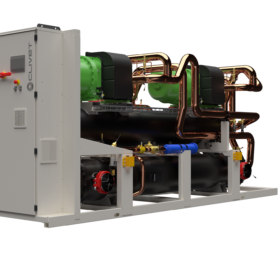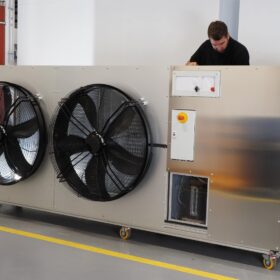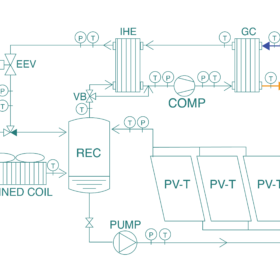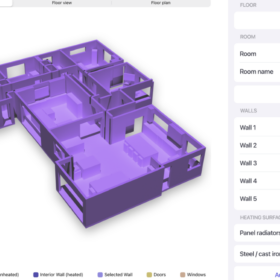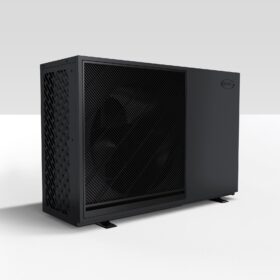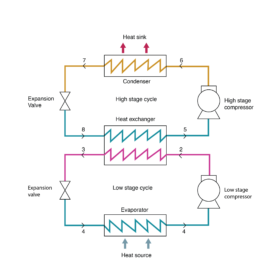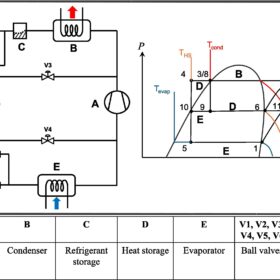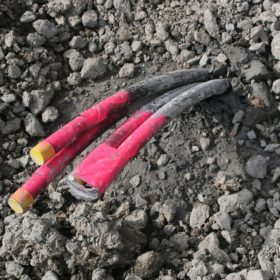Clivet launches water-cooled multipurpose heat pump
The Italian manufacturer said the its new polyvalent reversible heat pump has a seasonal coefficient of performance of 4.44 to 4.59 and a seasonal energy efficiency ratio of 7.72 to 7.53. It can reportedly achieve a flow temperature of up to 55 C.
Fraunhofer ISE developing propane heat pumps for multi-family homes
Germany’s Fraunhofer Institute for Solar Energy Systems (Fraunhofer ISE) is developing “easy-to-use and reproducible” propane heat pumps to replace fossil fuel systems in multi-family homes, while exploring modernization options for various residential building types.
Dual-source CO2 heat pump based on photovoltaic-thermal evaporators
Researchers in Italy have conceived a dual-source heat pump system that uses both a finned-coil evaporator and a solar evaporator made with three photovoltaic-thermal panels. Thanks to the combined action of the two evaporators, the heat pump can achieve higher evaporation pressure and coeffficient of performance.
German startup offers design tool for heat pump installers
German software company Autarc launched a platform for residential heat pump projects, covering design, planning and customer project management functionality. It uses LiDAR imaging to enable heat load and hydraulic balancing calculations, as well as visualizations.
Grant launches air source heat pump for residential applications
The novel propane heat pump has a coefficient of performance of up to 4.9 and can reportedly achieve a flow temperature of up to 55 C.
Dandelion unveils residential geothermal heat pump with coefficient of performance of 5.2
The novel heat pump can reportedly heat air to up to 49 C. Its full-load heating capacity is of up to 63,000 Btu/hour.
How to increase coefficient of performance in two-stage cascade heat pumps
A group of researchers in Thailand outlined a new methodology to identify the optimal temperature in two-stage cascade heat pumps using non-azeotropic refrigerants. Through their analysis, the scientists found that the coefficient of performance for simultaneous heating and cooling is affected by the pinch point temperature at the cascade heat exchanger, with lower temperature levels being responsible for a higher COP.
Thermoelectric subcooling may improve coefficient of performance of propane heat pumps by 12%
An international research team has investigated how thermoelectric subcooling may be integrated into propane heat pumps to reduce power consumption in the vapor compression system. Their work showed this combination can not only reduce electricity consumption but also significantly improve heat pump performance.
New defrosting tech may increase coefficient of performance of air-source heat pumps by up to 11.2%
Researchers in the United Kingdom have presented a new heat pump system that may avoid reducing heat supply during defrosting operations. The proposed concept can reportedly execute defrosting operations while ensuring continuous heating by condensing the refrigerant in the frosted evaporator.
Using surplus PV power for seasonal underground thermal storage
Scientists have proposed a new system that uses surplus PV energy in the spring and the autumn to charge up underground thermal energy storage for later use in the summer and winter. They have simulated it on a school facility in Seoul, with a few optional configurations for thermal storage. Power savings were up to 39%.
